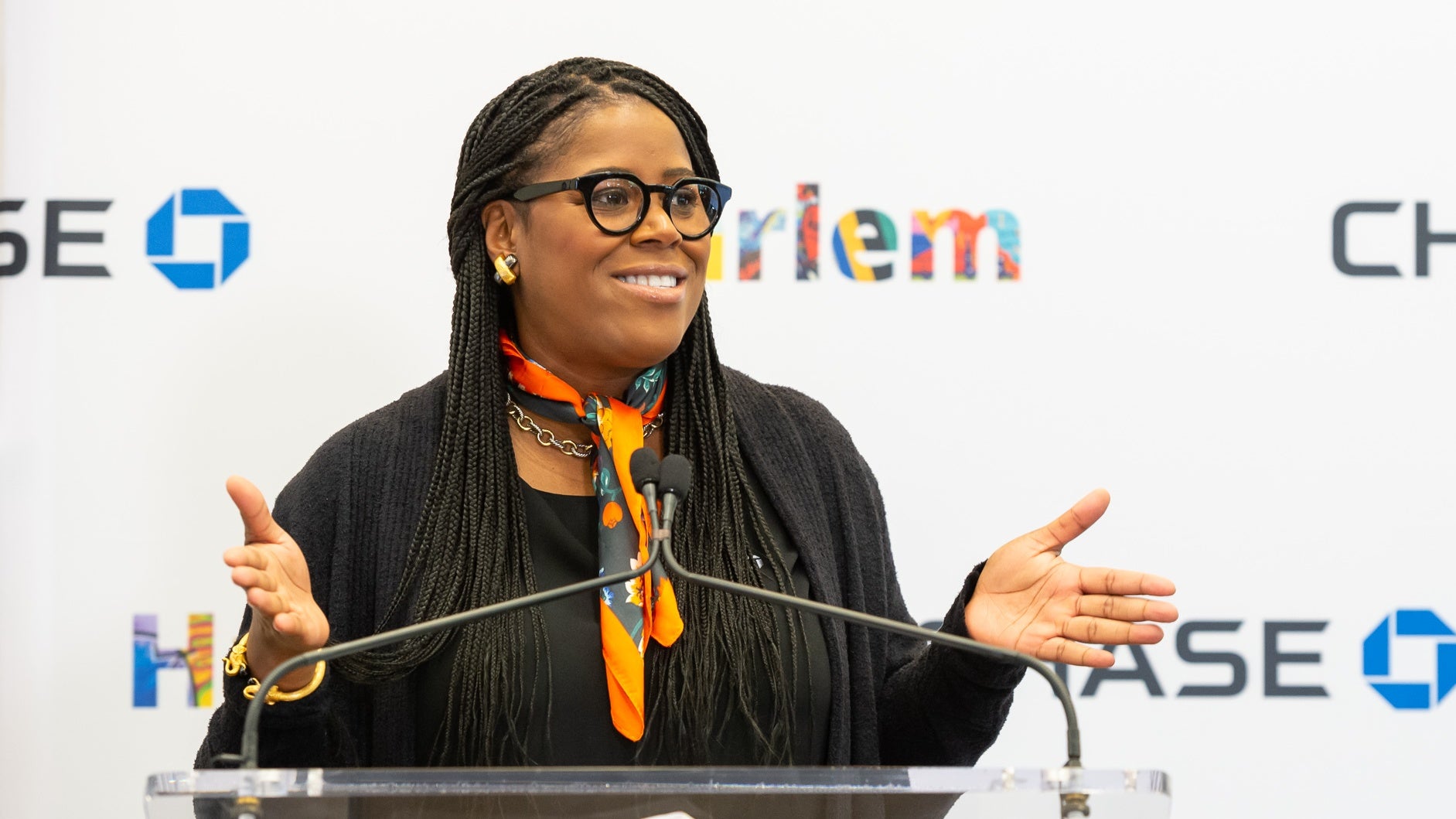
Whether we want to admit it or not, we all have spending impulses, which are only made worse by our constant access to online shopping via our phones. But, let me give you a trick: Go to any site, find what you love and put it all in your cart. Just don’t hit “buy.”
Then, wait 24 hours, go back, and ask yourself: “Do I really need it? What about these items map to my goal? And if it’s nothing, hit “delete,” and you’ve got your fix.
Thasunda Brown Duckett has served in leadership roles at Chase for 16 years and is now the CEO of Consumer Banking
Honest talk leads to a better vision
Let’s be honest with each other here: Talking about money is hard, but we have to do it. And I promise you’ll feel better about your financial health if you stick with me for six short steps.
First, let’s start the conversation, and then keep it going. Even if we need some tissues (ok, a lot of tissues) along the way.
When I ask, “What does money mean to you?” most people will say things like, “I feel anxious.” Perhaps that’s when our insecurities start to show. Then comes the shame. And sometimes, the tears. That’s because money matters come with judgment. And many of us are our own harshest judge.
When you can’t pay your bills on time, you tell yourself, “I don’t want anyone to think I’m not smart enough to handle this.”Or even worse, “I don’t want anyone to know that I’m super-stressed out.”
You are not alone, sister. More than one-fifth of adults in the U.S. couldn’t pay all their current month’s bills on time in 2017. Nearly half of us would struggle coming up with $400 for an emergency.
So, let’s change our narrative in six steps.
- Talk about it
I know you would rather talk about anything else than your money stresses. It’s taboo, right?
Wrong. We can’t do it alone. You need your squad to come together. No judgment, no shame. Celebrate that you’ve made a decision to create a better relationship with money. Clap your hands, snap your fingers, hug each other.
Now, get real. Nothing is off-limits. Ask yourself tough questions:
- What are my fears?
- What are my dreams?
- Why am I spending all this money on things that don’t align with my goals?
Now, start to take action:
- What can I do this week?
- What can I do this month?
It doesn’t have to be big, but it does have to be something.
- Understand what money is – and is not
Money is not the “Be-All-End-All.” It’s simply the mechanism to accomplish what matters to you most.
- Identify what matters to you
Ask yourself one fundamental question: What am I saving for? Is it a car, paying down your debt, saving for that rainy-day fund? Each journey includes short-term goals and long-term goals, so don’t be shy about identifying yours.
- Then Picture it, Really Picture It
I know this sounds silly. I do know you’re not in the third grade anymore. But I want you to go get a poster board, markers, glitter and scissors, then grab some magazines and start cutting out pictures. Glue them down.
Now you can picture that great trip or that new outfit for the reunion. Even better, perhaps you can picture yourself paying down your student debt.
It really helps to see what you’re trying to accomplish. You can use one photo, 10 or 22. You just need to put those goals on your board, and then align your behavior with them. You’ve shown how you want to live your life and the steps to really get there.
- It’s not what you make. It’s what you keep.
Ask yourself this question that sounds so simple, but is actually really hard: Do I have the ability to take care of my basic needs with what I’m making?
And if not, what adjustments do I need to make?
Then, talk about the tools. Do I have a savings account? Am I putting money in it faithfully? Do I have some automatic way to save?
The good news is that you don’t have to start out with a huge amount. The goal is the rhythm, so even $1 a day can make a difference. Figure out your own rhythm that works for you.
And remember: You can start small, but you have to start now.
- Be good to yourself
Your self-worth is not determined by your net worth. We’re all good people, doing the best we can.
So, celebrate your wins. And when you make that misstep – and we all do – don’t feel judgment or shame. Just get back at it. Keep your vision board going. And most importantly, keep the conversation going.
Go to www.currencyconversations.com to join the conversation.